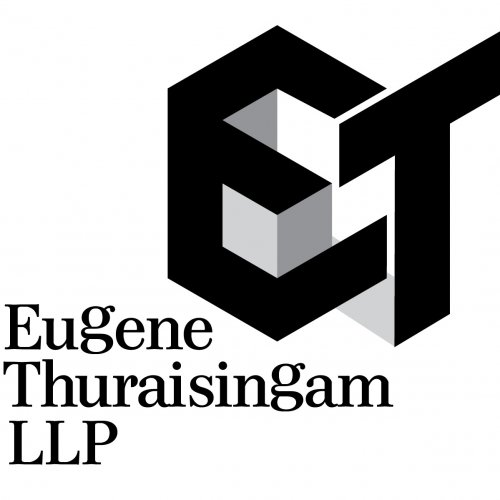
Eugene Thuraisingam LLP
City Hall, Singapore
EUGENE THURAISINGAM LLP (“ET LLP”) is a premier dispute resolution practice specialising in disputes and investigations. It is recognised as one of The Best Lawyers™ in Singapore in the field of Criminal Defence 2022 and “Singapore’s Best Law Firms in 2021” by the Straits Times and Statista. It is also Benchmark Litigation’s “Asia-Pacific Boutique Firm of the Year” and the choice firm for any client seeking an experienced, committed and conflict-free team of counsel to conduct high-stakes disputes.
Free • Anonymous • Expert Lawyers
Need Personal Legal Help?
Connect with experienced lawyers in your area for personalized advice on your specific situation.
No obligation to hire. 100% free service.
Practice areas
Eugene Thuraisingam LLP is a premier dispute resolution firm with a strong track record in criminal law practice. We have expertise in criminal defence at all levels of the Singapore Courts and have successfully obtained acquittals, reduction or withdrawal of charges through robust representations, and defended clients accused of a wide range of offences including:
White-Collar Crimes | Criminal Breach of Trust | Securities & Futures Act Offences | Fraud & Cheating | Murder | Sexual Offences | Drink Driving | Other Regulatory Offences.
Need help with a legal matter?
Reach out to our team for expert legal guidance tailored to your situation.
Our Partners and Associates
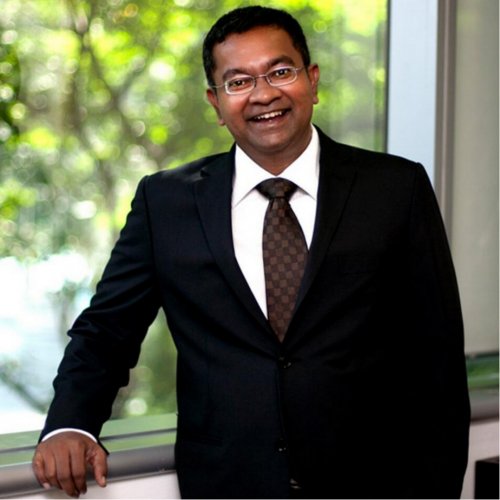
Eugene Thuraisingam studied at the Anglo-Chinese School. He read law at the National University of Singapore when he was placed on the final year Deans List with a good Second Upper Bachelor’s Degree in Law.
Eugene began practice at Allen & Gledhill, a prestigious Singapore firm in 2001, and quickly rose through the ranks to be made a partner of the firm in 2007. In 2009, he joined Stamford Law Corporation (now known as Morgan Lewis Stamford LLC), and was one of the pioneers of the firm’s dispute resolution practice until he left to set up his own practice. He is known to be a fiery advocate with a penchant for fighting for justice. A “strong-willed and determined litigator” is how some clients describe him. Others praise his strategic approach to positioning a case for settlement, when the appropriate circumstances arise. In 2012, Eugene started his own practice, Messrs Eugene Thuraisingam (now known as Eugene Thuraisingam LLP), a boutique dispute resolution outfit with core practices in criminal defence and commercial dispute resolution.
For his dedication to pro bono criminal representation, Eugene received the LASCO Award in 2016. Eugene is also regularly instructed on matters which invoke issues of human rights and the rule of law. He has argued matters concerning freedom of speech, the constitutional right to counsel, and separation of powers. In a notable case, Eugene successfully persuaded the High Court and the Court of Appeal (by a majority) that the Government did not have the right to institute proceedings under Section 15 of the Singapore Protection from Harassment Act. In 2018, Eugene was named by Asialaw as a Market-Leading Lawyer in Dispute Resolution & Litigation.
It is the view of the firm, Eugene Thuraisingam LLP, that defending fundamental liberties guaranteed by the law lies at the heart of the task of lawyering.
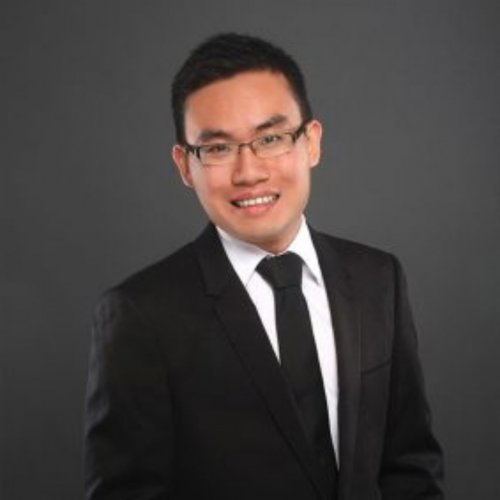
Suang’s record as lead counsel includes securing an acquittal for a domestic helper accused of numerous theft charges, and pursuing the Court of Appeal to permit a novel application for financial relief consequential upon foreign divorce. A versatile lawyer, Suang is adept in leading all manner of hearings, including commercial and criminal hearings, trials and interlocutory applications. Suang’s practice focuses on complex commercial and tort disputes, white-collar and other serious crime, and professional disciplinary processes.
In 2014, Suang graduated with First Class Honours from the National University of Singapore. Drawn to the firm’s commitment to access to justice and the upholding of fundamental liberties, he joined Eugene Thuraisingam LLP as a trainee and subsequently junior lawyer. In 2018, after three years in practice, Suang became a partner of the firm.
Suang has interests in civil and criminal procedure, and has published on both these areas. He was also a contributor to the book Same But Different: Legal Guidebook For LGBT Couples & Families in Singapore (2016).
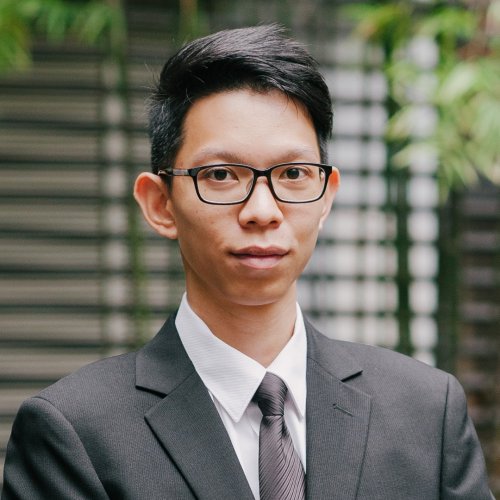
Jing Yen graduated cum laude from the Singapore Management University (SMU) in 2015, placing on the final year Dean’s List.
Equally adept appearing at all Court levels, Jing Yen has been endorsed by clients for his “sharp mind” and “calm demeanour”. His keen eye for detail and ability to juggle competing perspectives gives him a particular strength in civil litigation and arbitration matters. He has published in the Singapore Law Gazette on the striking out of frivolous and vexatious lawsuits.
Jing Yen’s pro bono practice includes assignments from the Legal Assistance Scheme for Capital Offences (LASCO) and the Criminal Legal Aid Scheme (CLAS) as well as the occasional appearance at a community legal clinic.
Jing Yen holds a Diploma in Instrumental Teaching (Violin) from the Associated Board of the Royal Schools of Music, London and would be a music teacher were he not captivated by the practice of law.
—
“Jing Yen is an effective litigator. He has a good mastery of the law and is able to plan his long term litigation strategy very early into the suit.”
– Dispute Resolution, Asialaw Profiles 2021
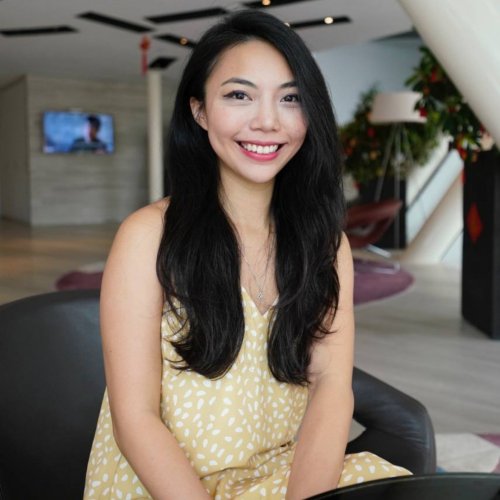
Rachel Wong is a corporate lawyer that focuses on early stage companies as well as private mergers and acquisitions (M&A) in Singapore. She currently serves on the Corporate and CPD Committee of The Law Society of Singapore.
In 2013, Rachel graduated with First Class Honours from King’s College, London (LL.B.) and was called to the Singapore Bar in 2015. Prior to commencing at Eugene Thuraisingam LLP, Rachel worked in the corporate M&A / private equity departments of leading international firms in London and in Singapore. Her select representative work includes advising in the series financing of The Culture Trip in London, advising several e-commerce companies on corporate and commercial matters and advising on several private equity transactions in Singapore.
Rachel has a keen interest in legal technology, innovation as well as providing better legal support for early stage companies in Singapore.
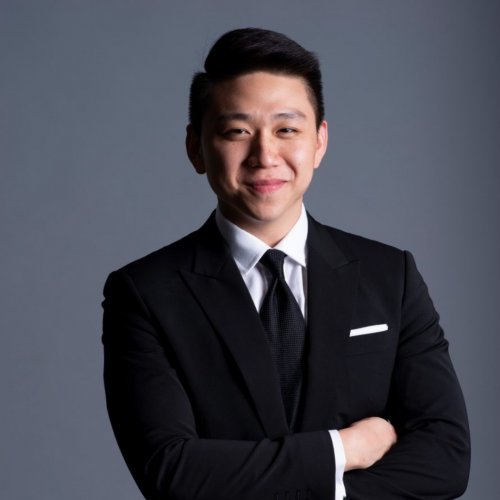
Johannes is a skilled and reliable associate who has experience at all levels of the Singapore Courts. His practice areas include constitutional and administrative law, white-collar and other serious crimes, tort litigation, and employment and professional disciplinary proceedings.
He has been a key player in many notable successes before the Court of Appeal, including high-profile acquittals and landmark judgments in novel or publicly important areas of the law.
Johannes read law at University College London (UCL) where he won the inaugural inter-university Human Rights Moot 2014. His interest in moral and legal philosophy then led him to postgraduate studies at the London School of Economics and Political Science (LSE), where he topped the cohort in several subjects and graduated with a Master of Science (Distinction) in political theory.
Before he had clients to act for, Johannes acted for theatre audiences. His professional theatre credits include Family Outing (W!LD RICE, Man Singapore Theatre Festival) and he has studied classical piano and violin with the Associated Board of the Royal Schools of Music, and musical theatre with the London College of Music.
Each morning he wakes up torn between a desire to improve the world and a desire to enjoy it, which makes it hard to plan the day.
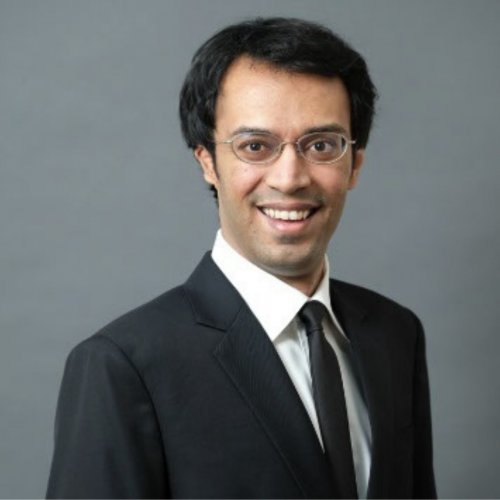
Hamza graduated with a Juris Doctor (JD) from the Singapore Management University (SMU) in 2017. He was the recipient of the Peggy Phang Prize for the Top Student in Legal Theory and Philosophy.
Hamza has a strong interest in both civil and criminal litigation. He is passionate about helping his clients through his legal knowledge and love of the law. In addition to his JD, Hamza holds an MA (Distinction) in International Political Economy from King’s College London and BA (Second Class Honours, Upper) in English Literature and Modern History from the University of St Andrews. His strong academic background have equipped him with the critical thinking and communication skills to be an effective advocate.
When he is not in the office, Hamza is an avid reader of books on politics and current affairs, and enjoys following sports. His wider interest in the world around him feeds into his love of the law and the way it enables him to help people from all walks of life.
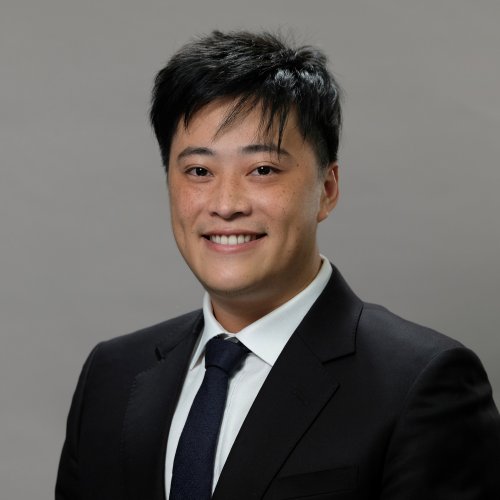
Genghis read law at the University of Birmingham in 2016 and commenced his training with Eugene Thuraisingam LLP shortly after graduation. Genghis is experienced in various areas of dispute resolution work. He has assisted in civil and commercial disputes at all Court levels, and has been integral to several important victories secured by the firm. His experience extends to matters of contractual and tortious disputes, corporate insolvency and bankruptcy.
During his time with the firm, Genghis was also able to develop a strength in criminal practice and secured favourable results for his clients at various stages of proceedings, including appeals. He is well-versed in various areas of crime, including violent, sexual, drug, military and regulatory offences. He has also represented and advised clients enmeshed in complex white-collar crime.
Genghis’ approach to dispute resolution involves effective communication, critical thinking and competent legal representation. Coupled with a competitive mentality that is honed both at and outside of work, Genghis is well equipped to overcome the challenges of legal practice.
To manage the rigours of practice, Genghis seizes any opportunity to “wine” down and participate in sports such as badminton, tennis and basketball.
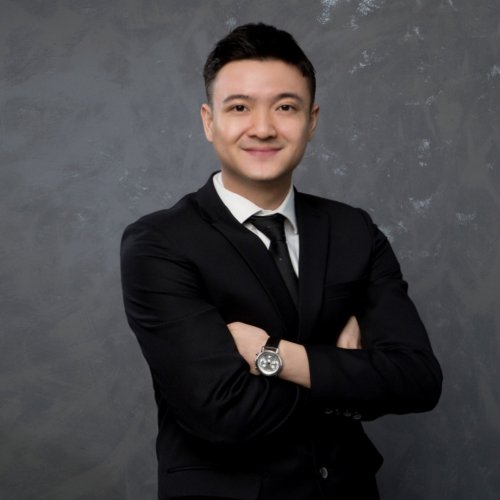
Joel read law at University College London (UCL) where he graduated with Upper Second Class (Honours) in 2018. Shortly after graduating, Joel joined Eugene Thuraisingam LLP because he deeply admired the firm’s track record of acting in high profile commercial, criminal and constitutional cases.
As a practice trainee, Joel was exposed to all areas of disputes work. Most recently, Joel assisted in a High Court trial concerning illegal remittances of large sums of money from China to Singapore, and which involved novel questions of foreign law illegality (Lyu Yan v Lim Tien Chiang and others [2020] SGHC 145). He also assisted in the criminal defence of an accused person who stood trial for a capital drug trafficking offence (Public Prosecutor v Moad Fadzir Bin Mustaffa & Zuraimy Bin Musa [2019] SGHC 33/ [2019] SGCA 73). The accused was acquitted by the High Court of the capital charge, and this was eventually upheld by the Court of Appeal.
Outside of law, Joel’s interests lie in journalism and sports. In his university days, he was the Managing Academic Editor and a regular contributor of the UK Singapore Law Student’s Society’s (UKSLSS) legal publication, Lex Loci. In his spare time, he enjoys rollerblading along the networks of park-connectors across the Island.
Case results
The Law on Importation & Wilful Blindness – Accused Acquitted of Capital Charge
Drug Crime
Read morePublic Prosecutor v Muhammad Shafiq Bin Shariff [2021] SGHC 150
1. Introduction
On 22 June 2021, the team at Eugene Thuraisingam LLP (comprising Eugene Thuraisingam, and Genghis Koh), as well as our former Partner Syazana Yahya, successfully secured an acquittal for Muhammad Shafiq Bin Shariff (“Shafiq”) of a capital drug trafficking charge, heard before Justice Ang Cheng Hock.
Shafiq was 25 years old at the time of the alleged offence in 2017 and was arrested en route to Singapore from Malaysia via the Woodlands Checkpoint. He was tried before Justice Ang Cheng Hock on one capital charge of importing five packets of 497.57g of crystalline substance containing not less than 334.67g of methamphetamine (also commonly known as “Ice”), an offence under section 7 of the Misuse of Drugs Act (Cap 185, 2008 Rev Ed) (the “MDA”) (“Capital Charge”).
2. What is the law on importation?
In Adili Chibuike Ejike v Public Prosecutor [2019] SGCA 38 (“Adili”) at [27], the following elements must be proved by the Prosecution to make out the offence of importation under section 7 of the MDA:
(a) the accused was in possession of the drugs;
(b) the accused had knowledge of the nature of the drugs; and
(c) the drugs were intentionally brought into Singapore without prior authorisation
Our client’s case was that he did not know that Ice was hidden in the Blue Box that he had brought into Singapore. As such, we argued that there must have been reasonable means of inquiry available to Shafiq as to whether he had possessed the drugs for the purposes of section 7 of the MDA. This is because, to prove possession, it must be shown that:
(a) the accused was in physical possession, control, or custody of the controlled drugs; and
(b) the accused knew that the thing that turns out to be a controlled drug was in fact in his possession, custody or control.
Hence, we submitted that Shafiq cannot be found to be in possession of drugs (even if they were within his physical custody) if they were planted on him without his knowledge, as clarified in Adili at [34].
3. Prosecution’s Alternative Case that Shafiq was wilfully blind
The Prosecution’s alternative case on wilful blindness related only to the element of possession, and not of knowledge of the nature of the drug (i.e. that while Shafiq did not actually know of the existence of the Drugs, he was wilfully blind to its existence)
The Court of Appeal in Adili laid down three requirements that must be satisfied and proved beyond a reasonable doubt by the Prosecution before a finding of wilful blindness could be made:
(a) the accused person must have had a clear, grounded and targeted suspicion of the fact to which he is said to have been wilfully blind.
(b) there must have been reasonable means of inquiry available to the accused person, which, if taken, would have led him to the discovery of the truth.
(c) the accused person must have deliberately refused to pursue the reasonable means of inquiry available so as to avoid such negative legal consequences as might arise in connection with his knowing that fact
In our client’s case, the Court found that Shafiq did not have a clear and targeted suspicion that the blue milk powder box contained the four packets of not less than 334.67g of methamphetamine, rather than milk powder, the ecstacy pills, or the small packet of ice. The Court reiterated that the mere fact that Husir is a known drug dealer does not ipso facto ground a suspicion that Shafiq had been handed a capital amount of methamphetamine.
This is because Shafiq was barely paid anything for the transaction and Husir had explicitly told Shafiq that he was only importing ecstacy pills and 1g of methamphetamine. Shafiq would only have had a suspicion that the blue milk powder box might contain the ecstacy pills and 1g of methamphetamine, but not a capital amount of methamphetamine.
As such, the Court found that the Prosecution has not shown that Shafiq was wilfully blind to the existence of the 333.7g of methamphetamine that was found in the four silver packets in the blue milk powder box.
4. Unique features of the case
The unique features of Shafiq’s case which led the Court to conclude that Shafiq has rebutted the section 18(1)(a) of MDA presumption on a balance of probabilities include:
(a) Shafiq consistently denied knowing that the blue milk powderbox contained methamphetamine in all of his investigative statements.
(b) Shafiq was not aware that Husir was selling methamphetamine, and, according to him, there were no large quantities of methamphetamine in Husir’s condominium unit.
(c) It is undisputed that Shafiq was only given the small packet of ice (0.97g of methamphetamine) for helping Husir to deliver the red plastic bag into Singapore.
(d) Shafiq was not involved in, and did not see, the packing of the blue milk powder box.
(e) Shafiq’s DNA was also not found on the blue milk powder box, even though the blue milk powder box’s exterior and interior surfaces were swabbed by the HSA for DNA.
(f) There is no objective evidence to show whether it is truly “impossible” to make large winnings from SCR888 in relation to what the Prosecution submitted as too large a sum for it to be winnings from SCR888 and/or sales from ecstacy dealings on Shafiq’s withdrawal of about S$22,000 after his first and second trips to Johor.
(g) Shafiq and Husir are evidently sufficiently well acquainted that Shafiq would allow Husir’s son, Rahilme, to sleep in Shafiq’s flat in Bukit Batok when Rahilme was in Singapore. Shafiq would not have had grounds to believe that Husir might sabotage Shafiq. Husir had explicitly told Shafiq that he would only be delivering ecstacy pills into Singapore, and Husir even showed Shafiq the 100 pills of ecstacy.
5. Conclusion
In light of the foregoing, Ang J found that the Capital charge has not been made out and did not convict Shafiq of the Capital charge.
However, as Shafiq had admitted to knowingly importing 0.97g of methamphetamine (which is a subset of the 334.67g of methamphetamine) Ang J amended the Capital charge under sections 138-139 of the Criminal Procedure Code (Cap 68,2012 Rev Ed) (“CPC”), wherein these provisions concern the situation where the court may convict the accused person on a charge that has not been framed. These provisions were analysed by the Court of Appeal in Public Prosecutor v Wee Teong Boo and other appeal and another matter [2020] 2 SLR 533.
As there are two other charges that have been stood down for the purposes of the capital trial, the Court will decide on the sentence at a later date, after the Prosecution informs the Court of its intentions on the remaining two stood down charges.
Acquittal of Rape and Outrage of Modesty Charges
Sex Crime
Read moreMedical Practitioner acquitted of rape and outrage of modesty charges
1. Introduction
A general practitioner, Dr Wee Teong Boo (“Dr Wee”) was charged with the molest (“OM”) by allegedly stroking the patient’s vagina with his fingers in November 2015, punishable under section 354(1) of the Penal Code, and rape by allegedly penetrating the patient’s vagina with his penis without the patient’s consent in December 2015, under section 376(2) of the Penal Code punishable under section 376(3) of the Penal Code. Both incidents took place at his medical clinic. Dr Wee denied committing both offences.
Following a trial conducted by his previous solicitors, Dr Wee was acquitted of rape, but found guilty of molest and sexual assault by digital penetration. He was sentenced to an aggregate term of imprisonment of 10 years.
Dr Wee appealed against both his convictions and his sentence. The Prosecution appealed against the acquittal on the Rape Charge and the sentence meted out.
Eugene, Jing Yen, Syazana, and Johannes represented Dr Wee in the appeal to the Court of Appeal.
2. Background
On 25 November 2015, the day on which Dr Wee allegedly outraged the patient’s modesty, the patient consulted Dr Wee as she was experiencing gastric discomfort. During the consultation, Dr Wee palpated the patient’s lower abdominal area and then pressed on the “joint area” near the patient’s groin and remarked that there was a lump. Dr Wee then allegedly slid his right hand under the patient’s panties and started stroking her vagina with his right fingers in an up and down motion. He then asked the patient to sit up, and as she did so, he continued stroking the patient’s vagina with his right fingers.
Dr Wee claimed that it was the standard abdominal examination he would have performed on all his patients in these circumstances. Dr Wee prescribed some medication for phlegm and gastritis.
On 30 December 2015, the patient felt itch at her genital area and consulted Dr Wee. The patient scheduled an appointment for 11pm and two more patients were waiting to see Dr Wee after the patient.
During the consultation, the patient informed Dr Wee of her symptoms. Dr Wee directed the patient to the examination room. On the examination table, the patient felt “something horizontal” poke into her vagina and alleged that she was raped. Dr Wee denied raping the patient.
3. Court of Appeal’s decision
On 10 June 2020, the apex court comprising Chief Justice Sundaresh Menon and Judges of Appeal Steven Chong and Belinda Ang affirmed the High Court Judge’s decision to acquit Dr Wee of the Rape Charge in Public Prosecutor v Wee Teong Boo [2020] 2 SLR 533.
The patient claimed that she had been raped while Dr Wee stood between her legs and was holding on to her legs throughout the incident. Dr Wee underwent three separate medical examinations on his erectile function. One of the doctors who gave evidence at the trial, Dr Peter Lim Huat Chye, explained that it would have entailed “great difficulty” for his penis to enter the vagina unaided. Further, there was ample reason to doubt the alleged penetration on the common ground that the patient was a virgin, not a willing partner, and did not aid the alleged penetration. The Court found it implausible that Dr Wee could have penetrated the patient’s vagina in the manner she described. The Court also agreed with the High Court Judge that it was doubtful that Dr Wee would have attempted penile penetration considering that the clinic assistants were present just outside and there were still few patients waiting to see Dr Wee for consultation at the material time.
The Court overturned the High Court Judge’s conviction of Dr Wee on the OM Charge. The Court found it difficult to accept the patient’s testimony that she thought Dr Wee’s alleged actions on 25 November 2015 were part of a medical examination. Also, the court was troubled by the significant delay of 36 days between the alleged molestation and it being reported.
The Court also overturned the High Court’s conviction of Dr Wee on the Digital Penetration Offence. It was held that this case did not fall within the ambit of section 139 of the Criminal Procedure Code. The version of facts for the Digital Penetration Offence was incompatible with the case mounted by the Prosecution and with the evidence of the patient. The Court was satisfied and accepted the Defence’s submissions that Dr Wee had been substantially prejudiced by his conviction on the Digital Penetration Offence.
The Court of Appeal expressed its disbelief at the complainant’s testimony, which was internally inconsistent and contradicted by several pieces of the objective evidence.
In the judgment, the Court of Appeal further expressed its displeasure at the manner in which the Prosecution had conducted its case at trial – in particular the Prosecution’s unjustified withholding of material evidence that would have shown at the outset that Dr Wee had difficulty sustaining an erection. This was clearly material to the allegation of rape, and the disclosure of this evidence fell squarely within the Prosecution’s Kadar obligations.
The Court of Appeal thereby overturned a 10-year imprisonment sentence meted out by the High Court and our client was entirely cleared of all the allegations against him.
Foreign Domestic Worker in Singapore Acquitted of 10 Charges
Criminal Defense
Read morePortela Vilma Jimenez v Public Prosecutor HC/MA 9002/2020/01
1. Introduction
We are pleased to share that on 30 October 2020, the Honourable Justice Chua Lee Ming (the “Judge”) acquitted our client, Portela Vilma Jimenez (”Portela”), a Filipino domestic helper, of all 10 criminal charges that had been brought against her. Portela had been charged with allegedly withdrawing money from her employer’s (the “complainant’s”) bank account 8 times over 2 months, without his consent.
Suang Wijaya and Syazana Yahya (with Ariffin Sha’s great assistance) acted for Portela.
We also owe an immense debt of gratitude to the Humanitarian Organisation for Migration Economics (“HOME”), and Portela’s unwavering network of friends and supporters.
2. The complainant’s version of the events
The complainant alleged that there had been unauthorised withdrawals from his two bank accounts in January and February 2017. The complainant stated that he never consented to Portela taking his 2 ATM cards. The complainant also alleged that he never gave Portela the PIN numbers to his 2 ATM cards.
3. Portela’s defence
Portela’s defence was that the complainant authorised the withdrawals. She testified that the complainant paid her some of the monies exchange for favours. According to her, this happened on a few occasions over January and February 2017.
We ran the case that, sometime shortly before 21 February 2017, the complainant’s family must have found out about various withdrawals from the complainant’s bank account. They must have asked him about these withdrawals. We argued that the employer then must have lied to his family, claiming that the withdrawals were unauthorised. We argued that the employer must then have had no choice but to lodge a false police report, to support his fabricated claim.
Needless to say, the complainant denied Portela’s version of the events.
4. The Prosecution’s evidence
One problem with the complainant’s story is that in his police report, the complainant claimed that he found out about the “unauthorised” withdrawals on 2 February 2017. The complainant also claimed in his police report that he had, in the first week of February 2017, visited the bank and reported these alleged "unauthorised" transactions.
However, at the trial, it was revealed that there was no record of this alleged bank visit in the first week of February 2017. The complainant’s police report was made only on 22 February 2017, some 3 weeks after he allegedly found out about the “unauthorised” withdrawals. Even stranger, between the time the complainant allegedly found out about the “unauthorised” withdrawals on 2 February 2017 and the police report on 22 February 2017, Portela somehow still managed to make a few more “unauthorised” withdrawals from the complainant’s 2 ATM cards!
Also oddly, the complainant testified at trial that he always had his wallet in his pocket at all times, even when he is in the toilet. Memorably, the complainant told the Court at trial that “even today”, his ATM cards, are in his wallet, which are in his pocket. This, coupled with the fact that the complainant was a former policeman who claimed to be careful with money, raises questions about how it was possible for Portela to have taken his ATM cards on multiple occasions without him knowing.
5. Portela’s evidence
Sometime in April 2017, without advance notice, Portela was suddenly asked to pack up and go to a maid agency. She was not told why. At the maid agency, and to Portela’s shock, police officers showed up to interrogate her regarding allegations of theft. Statements were taken without a Tagalog interpreter present. Portela’s own handwritten statements show that she had poor command of English.
Despite the unannounced interrogation, Portela steadfastly maintained her innocence. From the start, she explained that all withdrawals were authorised by the complainant. She also explained that he paid her monies in exchange for favours.
She maintained this position all the way to the trial.
6. The Court proceedings
The trial in the District Court took 5 days. To our disappointment, Portela was found guilty by the learned District Judge and sentenced to 12 months’ imprisonment. Portela appealed against the conviction.
Portela’s High Court appeal against her guilty verdict was heard on the morning of 30 October 2020. After oral arguments concluded, there was a short break of 20 minutes. After the break, the Judge immediately acquitted Portela, giving brief oral reasons for his verdict.
The Judge accepted 4 of our arguments. First, there is no evidence that the complainant made any report to the bank in the first week of February 2017. This is contrary to what he claims in his police report. Second, this means that the complainant inexplicably took 3 weeks to make a police report about the “unauthorised” withdrawals. The Judge found that this delay in reporting supports Portela’s case that the complainant consented all these withdrawals. Third, the Prosecution failed to put to Portela its case on how Portela could possibly have accessed the complainant’s ATM cards. This was crucial, given the complainant’s own evidence that his wallet, containing the ATM cards, were with him at all times. Fourth, the Prosecution failed to put its case to Portela on how the complainant could have obtained the employer’s PIN number, if it had not been given to her by the complainant himself.
The Judge therefore concluded that a reasonable doubt had been raised on the charges against Portela. He acquitted Portela on all 10 charges of theft.
7. Our thoughts
As a result of the police complaint made by the employer in February 2017, Portela was subject to investigations, a criminal trial and an appeal. This ordeal lasted more than 3 years. During this period, she was unable to work and earn an income. She was also separated from her family and faced the daunting prospect of being incarcerated for a substantial period of time in a foreign land. It is difficult to imagine a more harrowing experience.
We are again immensely grateful to HOME and Portela’s network of friends and supporters, without whom Portela’s journey would have been much more daunting.
There are many domestic helpers out there facing predicaments similar to Portela's and Parti Liyani's. We urge readers to donate to HOME’s access to justice funds that will go towards helping domestic workers’ fight for justice. You may donate here.
We are glad that justice was served. We wish Portela all the very best in her future endeavours.





